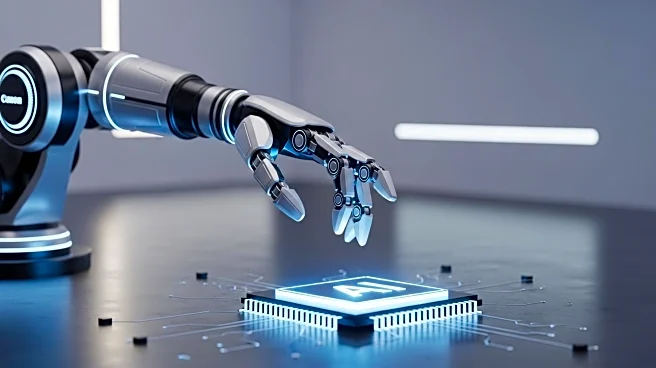What is the story about?
What's Happening?
Tesla, under the leadership of Elon Musk, is shifting its focus from traditional car manufacturing to developing autonomous vehicles and robots. The company's latest 'Master Plan IV' emphasizes a future dominated by robotaxis and humanoid robots, rather than new electric car models. Despite Tesla's success in the EV market, Musk is prioritizing autonomous technology, which he believes will transform Tesla into a ten-trillion-dollar company. The plan outlines a vision of 'sustainable abundance' through AI-driven innovations, although it lacks specific details. Tesla's board has proposed a potential pay package for Musk, incentivizing the deployment of millions of robots and robotaxis over the next decade.
Why It's Important?
Tesla's strategic shift could significantly impact the automotive industry, as the company has been a major driver of EV adoption. By focusing on AI and autonomous technology, Tesla may influence other automakers to prioritize similar innovations. However, this transition poses risks, as Tesla's current revenue largely depends on car sales. The move away from traditional EV manufacturing could affect market dynamics, especially as other companies catch up in the EV space. The success of Tesla's new direction will depend on its ability to deliver on ambitious AI goals, which could redefine transportation and labor markets.
What's Next?
Tesla's focus on AI and robotaxis may lead to increased investment in autonomous technology and infrastructure. The company will need to overcome technical and regulatory challenges to realize its vision. Competitors may respond by accelerating their own autonomous vehicle programs. The broader industry will watch Tesla's progress closely, as its success or failure could shape future transportation trends. Stakeholders will need to address ethical and societal implications of widespread AI adoption.

















